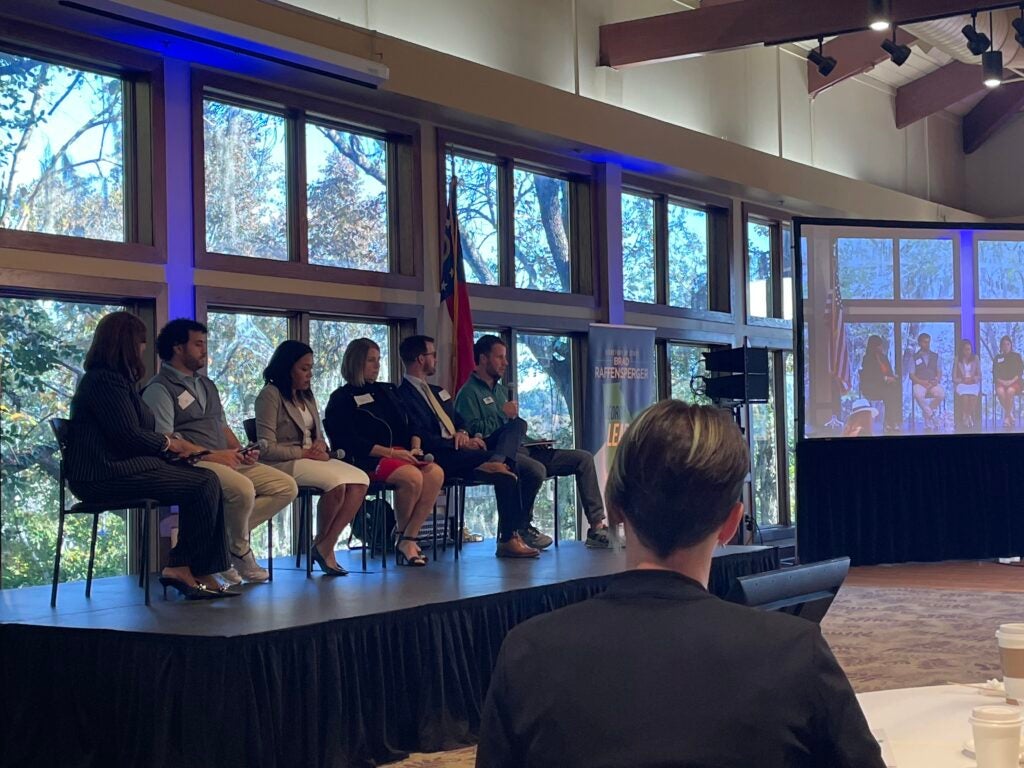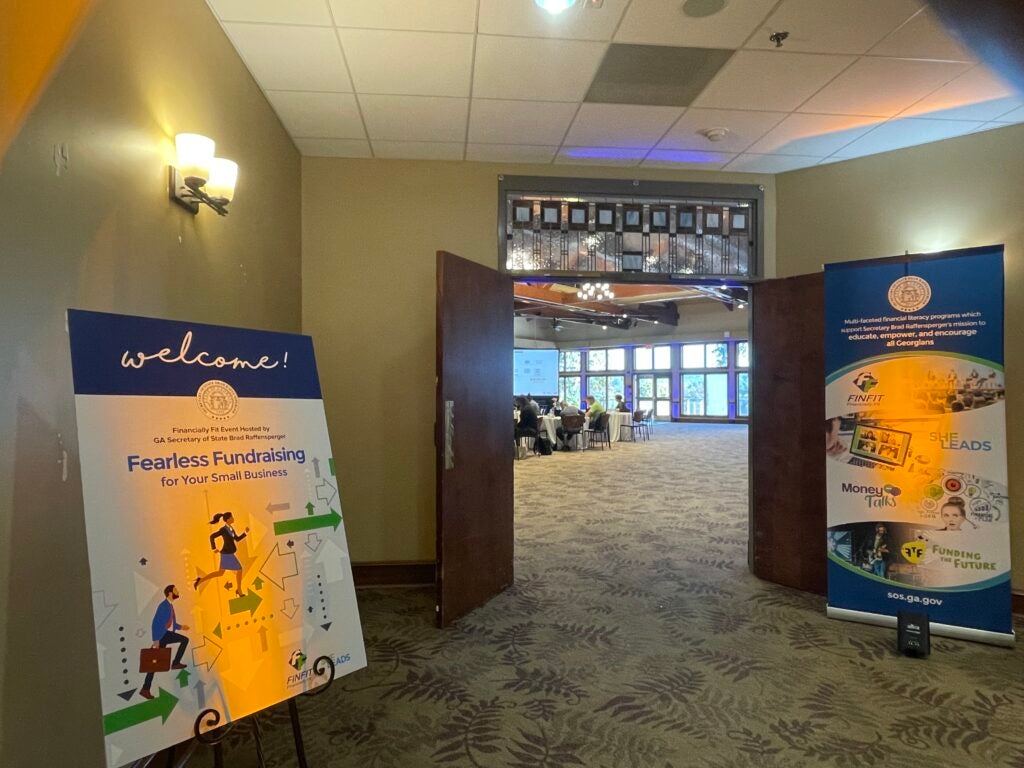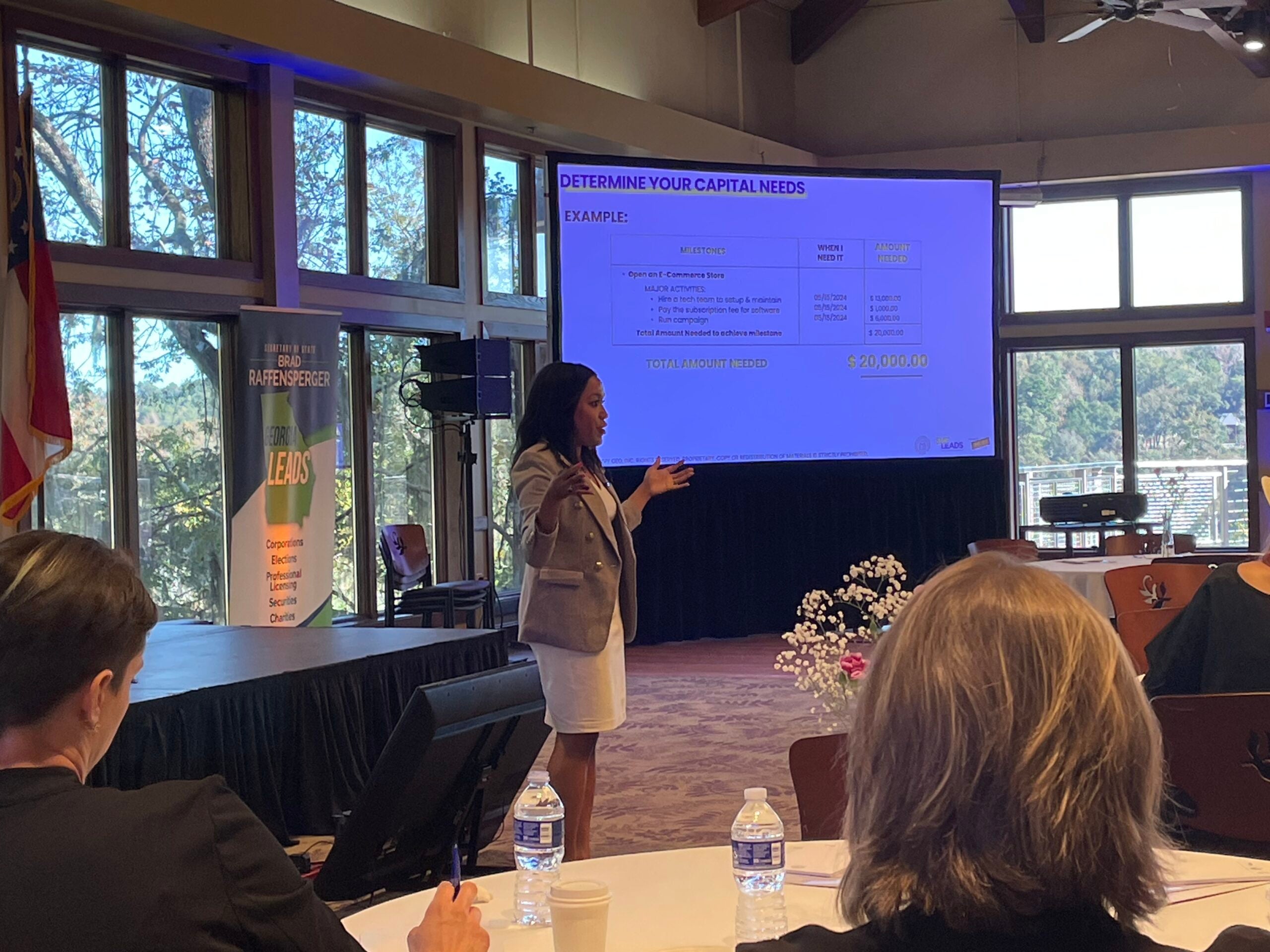The Georgia financial literacy program She Leads held its fourth annual Fin Fit Live event Thursday, Oct. 26 at Savannah Rapids Pavilion in Martinez.
Fin Fit (short for “financial fitness) is a yearly series of seminars hosted by Georgia Secretary of State Brad Raffensberger and coordinated by the Securities Division of the Secretary of State’s Office, one of the many outreach events of its She Leads financial empowerment initiative, launched in 2019.

The program, and the events, held throughout the state, offer free resources, information, workshops and networking opportunities for Georgia entrepreneurs.
The Columbia County Chamber of Commerce partnered with She Leads to organize Thursday’s forum, held from 8:30 a.m. to 12:30 p.m. and titled “Fearless Fundraising for Your Small Business.”
After a continental breakfast, an audience comprised mostly of local current and aspiring enterprisers observed a panel of state and local business leaders, moderated by GPB-TV broadcaster Donna Lowry.

Guest panelists included retail developer and investor Rafy Bassali, who owns Swank, Escape Outdoors and Posh Tots Children’s Boutique, Dustin Young, senior vice president of Pinnacle Bank, Cody Shepherd, executive vice president of CSRA Business Lending, business consultant Rebecca Callis Maxson and Atlanta-based financial expert Marguerite Pressley Davis.
The speakers fielded questions from Lowry and the audience about issues surrounding gathering funds to launch and operate small businesses, including if and how to seek loans.
“Make sure that you’re keeping your financials clean, as far as not mixing [with] your personal expenses,” said Davis during the Q&A, responding to an inquiry about when to pursue. “Think about it from [the bank’s or investor’s] perspective, if they’re looking at the transactions in your account, and they’re sporadic, or maybe there’s some personal things mixed in there, it’s not going to build their confidence in you as a businessowner.”
Shepherd mentioned the use of the Small Business Administration (SBA) 504 loan program, which provides long-term financing for major fixed assets (physical, tangible items or property owned by a company).
He presented an example of a typical structure of the loan, in which the bank might be at a 50% loan value in the first mortgage position, and the SBA makes a 40% loan, in the second mortgage. The borrowing business, then, only has to make a 10% down payment.
“So 10% versus 20% or 25% bridges that gap to where conventional financing might not have been an option,” Shepherd said. “The banks like it because they are now at a 50% loan to value versus 70% or 75% loan to value, so if the business doesn’t make it, the bank has to sell the property… So SBA takes a little bit of that risk, there.”
In responding to a question about whether one’s approach to acquiring funding should change for different industries, Bassali explained that he took out a 504 SBA loan to purchase a commercial property, calling it a “great program.”
The Q&A was followed by a learning lab, conducted by Davis, about developing fundraising goals, and cultivating a fundraising package, complete with financial literacy workbooks issued to attendees.
Davis, a serial entrepreneur and angel investor, encouraged participants to compose “pitch decks,” a document outlining details about the business, such as its goals, key means of revenue, potential competitors and expenses; make financial plans and projections; and build a “data room” organizing all the relevant information.
“One of the biggest challenges, where founders waste a lot of time, is they’re reaching out to lenders, they’re reaching out to investors without the right information,” said Davis. “So, the whole goal is to proactively get them prepared, knowing what these lenders and what these investors are really looking for.”
For more information on She Leads events and programs, visit www.sheleadsga.sos.ga.gov.
Skyler Q. Andrews is a staff reporter for The Augusta Press. Reach him at skyler@theaugustapress.com.










